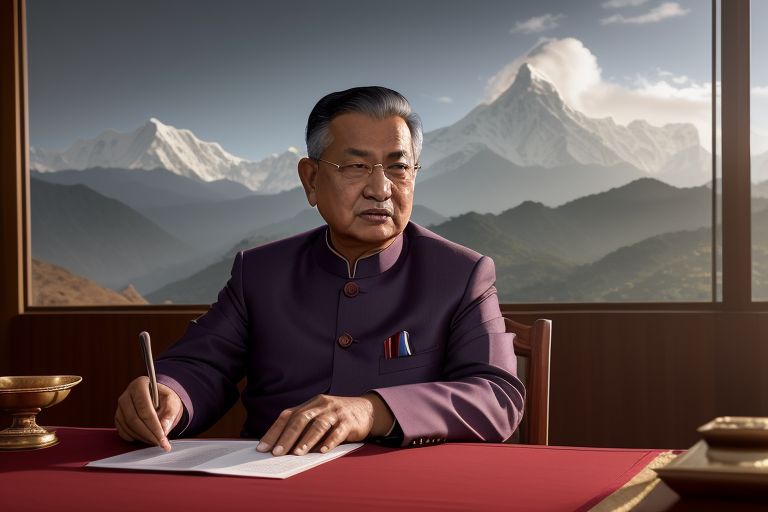The Nepali politics is experiencing a paradigm shift as PM K. P. Sharma Oli responds to the emerging competition in the world powers and its implications to Nepali international relations. While highlighting this complex geopolitical reality, Oli has stressed the importance of maintaining a balanced approach to engage with this reality and build strategic partnership while at the same time safeguarding national interests.
The Prime Minister’s comments are timely given the fact that Nepal has become the theatre of conflicting interests of regional and world powers. Nepal is a small landlocked country located between two big neighbors, India and China, and thus has always maintained a cautious approach in its diplomacy. However, competition over these powers as well as the increasing hegemonic role of the United States in the region has posed new dynamics to the Nepali policy makers.
Oli particularly emphasized on the sovereignty and independence of Nepal while dealing with such pressures. He stressed the importance of the Nepalese policy makers to diversify its diplomatic and economic ties so as not to rely heavily on one country. This, he said, would enable Nepal to use its geographical location for the development of the country without being dragged into a conflict of power.
The views expressed by the Prime Minister are evidence of Nepali leaders’ gradually evolving perceptions of the threats and opportunities that the shifting balance of power may hold. Nepal has been very much eager in establishing its foreign relations beyond the South Asian neighbors. The past years have witnessed political interaction with countries such as the United States, European nations and other Asian neighbors such as Japan and South Korea.
But this strategy of diversification has not been very smooth and without some few problems. Thus, the efforts to play a balancing act in relations have sometimes created strains with traditional allies in the case of Nepals. For example, Nepal’s involvement in the China’s BRI has created apprehensions in India while the growing relations with the US have been seen as suspicious by China.
Such a call from Oli comes at a time when Nepal has several domestic issues that need to be addressed, such as the economic impact of Covid-19, political crisis, and the requirement of infrastructure.
The Prime Minister underlined that these domestic goals must be served by the Nepalese foreign policy as the country cannot afford to be entangled in a war which is not in its interest.
The remarks of the Prime Minister of Nepal have provoked the political and strategists and international relations scholars in Nepal. Although many people admit that more moderate approach is preferable, there are rather various opinions on how it can be achieved in reality.
There are those who have called for an aggressive foreign policy that seeks to fully exploit the geostrategic location of Nepal in the region while there are those who have called for a defensive foreign policy that focuses on stability and economic growth of the country.
Nepal is in a similar boat while trying to manage its foreign affairs and while doing so the country’s leaders have a huge task of managing national interests and the contemporary international relations. The next few months and years are also likely to see attempts by Nepal to pursue its own foreign policy while at the same time trying to gain from relations with the major powers.


